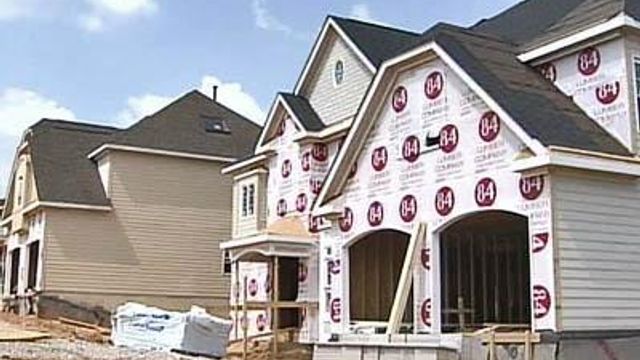Panel OKs Doubling Impact Fees in Raleigh
A City Council committee on Tuesday recommended doubling the fees developers pay on new construction to generate more money for local road improvements and parks.
Posted — UpdatedThe higher impact fees were among the priorities Mayor Charles Meeker laid out for the council this year, saying Raleigh needs to finance growth adequately so the city doesn't become overwhelmed.
Council members James West, Thomas Crowder and Nancy McFarlane joined Meeker in approving plans to put a complex sliding scale of impact fees to a public hearing in April.
The full council would consider the increased impact fees after the public hearing, and officials said the new fees could be in place by July, if approved.
"It's a way of having growth pay its fair share. It's not about slowing growth; it's about managing growth," Crowder said.
Developers now pay a flat fee of $1,200 for each single-family home they build, but city officials decided to split the fee into two segments – one for thoroughfares and one for open space – and devised a formula that would increase the fees for an average-size home to about $2,500.
Based on building permits taken out over the past seven years, officials calculated the average size of new homes at about 2,800 square feet. So the sliding scale was based on homes between 2,000 and 3,000 square feet.
Under the proposed increase, developers would have to pay $1,386 per home in that size range for street improvements. Fees of $1,491 to $1,684 would be charged for each larger home, while smaller homes would require fees of $1,051 to $1,249.
The impact fees charged for parks would range from $929 to $1,099 per home, depending on what part of the city they are located in, according to the proposal.
Meeker said the higher fees, which would be in line with those charged by Cary and Apex, could generate an extra $8 million to $10 million a year for the city to invest in roads and parks.
But opponents of the plan said residents the higher fees could stall a housing market that is already sputtering because of the national mortgage credit crunch.
"They haven't justified the need for the fees," said Dan Tingen, of Tingen Construction Co. "Given the economic climate that we're in right now, the added cost to the home buyer and the struggling nature of the home buyers right now, all that coupled together seems like piling on."
• Credits
Copyright 2024 by Capitol Broadcasting Company. All rights reserved. This material may not be published, broadcast, rewritten or redistributed.






